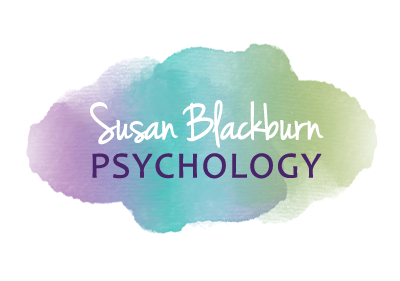I discovered the following article on Psychology Today’s website.
It outlines the factors ensuring long-term relationship satisfaction in a way that allows you to measure the success of your marriage or closest romantic relationship:
The 12 Ties that Bind Long-Term Relationships
Which relationships stand the test of time, and why?
Published on June 5, 2012 by Susan Krauss Whitbourne, Ph.D. in Fulfillment at Any Age
That crazy thing we call love is perhaps one of the most studied and least understood areas in psychology. One reason is that many studies of romantic relationships are carried out not in real life, but in the lab. Making matters worse, many of these studies involve dating relationships between samples of convenience, consisting of undergraduate students. Though these students are certainly capable of close relationships, many of them haven’t matured enough to know themselves, much less what they want out of a romantic partner.
What better way to find out about love than to survey the experts? Not the psychology experts—the expert members of couples who have been married 10 years or longer. The surprising findings of this study, reported in the prestigious journal Social Psychological and Personality Science, showed not only that many people were still in love even after 10 years of marriage, but also which factors predicted the strength of their passion. As reported by Stony Brook University psychologist K. Daniel O’Leary (2012) and his research team, the findings provided a stark contrast to the typically glum view we have of long-term marriages. Rather than being doomed to a bland, mediocre existence, these couples endorsed their positive feelings toward their spouses with hearty (dare I say) enthusiasm. A whopping 40 percent of those married 10 years or more stated that they were “Very intensely in love”—the highest rating on the scale. Another 15 percent gave their marriages the second-highest rating on the love intensity scale. Perhaps even more surprisingly, those who stuck together for 30 years and more also gave their marriages high ratings with 40 percent of women and 35 percent of men saying that they were very intensely in love. Clearly, many couples are able to maintain high levels of passion as the decades go by well into their middle and later years.
Just as clearly, not everyone felt the same degree of intensity about their spouses. The researchers turned next to trying to predict which relationships would be marked by the strongest degree of intensity. Psychological theories of love focus on such quintessential features as passion, commitment, closeness, early experiences in relationships, emotional needs, and ability to communicate. These are, of course, important to the health of any relationship. However, when it comes down to predicting which relationships will make it for the long haul, the questions become almost equally pragmatic as romantic.
Earlier research by psychologist Arthur Aron, who collaborated in this study, suggested that the people who are most intensely in love are the ones who feel a strong romantic attraction, but who also enjoy engaging in “self-expanding” joint activities that are novel and challenging. Based on findings from fMRI studies, the researchers also thought that strong love would involve regular strong doses of dopamine, the neurotransmitter that pumps up the brain’s reward circuits. The investigators couldn’t measure dopamine through a telephone survey, so instead they used questions that would tap into the amount of pleasure partners felt when they were around each other.
A few caveats about the study might have already come to your mind. First, and most importantly, the study was conducted only on couples who stayed together. The unhappy couples would have divorced and therefore not qualified for the research. On top of that, the couples obviously agreed to be in the study, so it’s possible that the unhappiest ones simply didn’t want to confront the questions about their marriages—although it’s also possible that the unhappy ones would have welcomed the opportunity to complain about their spouses. In either case, the researchers believed that the bias of wanting to look either very happy or very unhappy didn’t play a major role in affecting the results. One way that they made this assurance was by making the questions as focused on behavior as possible and therefore less subject to reporting bias. The study also has the obvious limitation of being conducted on partners in heterosexual marriages which may not be typical of all relationships.
Now that you’ve learned the basics of this fascinating study, it’s time to put your relationship to the test. See how you would rate your closest romantic relationship (marriage or otherwise) on these 12 key dimensions:
- Thinking positively about your partner. Having positive thoughts about your partner means that you focus on the good, not the bad, in your partner’s personal qualities and character. Ruminating about the things that bother you can only lead you to magnify the small foibles which will make your partner even more irritating to you than you would otherwise feel. People in good relationships engage in “sentiment override,” meaning that they remember more of the favorable than the unfavorable experiences they’ve shared together.
- Thinking about your partner when apart. When you leave your partner for the day, the evening, or for an extended period of time, do you forget about his or her existence? Is it out of sight and out of mind for you? If so, this may be a sign that you’re not that much in love. You don’t have to spend every second apart sighing longingly, but the fact that your partner isn’t there should at least cross your mind some of the time during the course of the average day.
- Difficulty concentrating on other things when thinking about your partner. If you’re able to set aside your thoughts about your partner without much effort, this suggests that your partner takes up only a small amount of cognitive load. Multitasking isn’t particularly desirable when it comes to musing over your loved one. In the O’Leary study, this factor was particularly important for men.
- Enjoying novel and challenging activities. Like definitely attracts like when it comes to personal interests and hobbies. Spending time together is important, as you’ll see below, but it’s how you spend your time that influences your relationship satisfaction even more. Aron’s self-expansion model, tested in empirical research, suggests that couples can improve their love for each other when they spend their time together exploring new and challenging activities. The O’Leary study identified this factor as especially relevant for men. If you’re going to go bungee jumping for the first time, your relationship will benefit when you and your partner face this challenge together. If you’re not up to bungee jumping, seek out mentally challenging ways to spice up your daily routines.
- Spending time together. If you love someone, you want to spend time with that person, and the more time you spend together, the more your love will grow. The time you spend should include some new and challenging activities, as shown in point #4. However, even spending time together in mundane household activities can enhance your love’s intensity. That basement remodeling you’ve been intending to get started can actually become a way for you and your partner to strengthen your emotional bonds. Cooking, gardening, grocery shopping, and even cleaning the house are other ways to bolster your love for each other. This was another factor that, in the O’Leary study, was more important for men.
- Expressing affection. Feeling love toward your partner is important, but so is expressing that love in physical ways. It’s not wise to play hard to get when your goal is to build the passion in your relationship. The affection you show doesn’t have to be elaborate or overly gushy. A touch on the shoulder or kiss on the cheek is enough to build your relationship’s intensity.
- Being turned on by your partner. Those tiny touches of affection can not only boost your emotional connection to your partner, but also stoke the sexual fires within. The respondents reporting the most intense love for their partner in the O’Leary study said that they felt their bodies responding when their partner touched them. This doesn’t mean a full-out sexual encounter has to follow from that touch on the cheek. Feeling a warm, tingling sensation from your partner’s physical presence is enough to keep the fire inside stoked until the time is right for sexual activity.
- Engaging in sexual intercourse. It should come as no surprise that having intercourse is a positive expression of a love’s intensity. People in love are more likely to have sex with each other on a regular basis. The O’Leary study showed, however, that part of the reason for the positive association between sex and love is that people who are happiest in their relationships both love their partners more and have sex more frequently. Whatever the cause, the point is that sexual activity builds and maintains feelings of love and even happiness that endure over time.
- Feeling generally happy. People who feel happier about life also have stronger feelings of love toward their partners. We can’t determine whether people who are in love therefore feel happier or vice versa from the survey data in the O’Leary study (and the finding was more true of women than men). However, the finding suggests that if you’re experiencing personal distress, this can leak out and cause your relationship to suffer. Similarly, if your relationship is in trouble, your personal happiness will suffer as well. Either way, it’s important for you to seek help before these negative effects take a heavy toll on your mental health.
- Wanting to know where your partner is at all times. Being intensely in love, for men, is associated with wanting to know your partner’s whereabouts. This component of intense love may seem a bit like stalking. But to put a positive spin on it, if you want to know where your partner is, this reflects the fact that your partner isn’t very far from your thoughts.
- Obsessively thinking about your partner. Being slightly obsessed with your partner turns out to be positively related to intense love, at least for women. The women most in love in the O’Leary study didn’t particularly care about knowing their partner’s whereabouts. However, they were more likely to engage in obsessive thinking about their partner more generally.
- Having a strong passion for life. People who approach their daily lives with zest and strong emotion seem to carry these intense feelings over to their love life as well. If you want your relationship to have passion, put that emotional energy to work in your hobbies, interests, and even your political activities. Your brain’s reward centers respond similarly to love as to getting excited about your other daily interests.Getting “fired up” in these areas of life translates into firing up the feelings you have toward your partner and in the O’Leary study seemed to matter more for men.
The formula for keeping love alive in your closest relationship is a complicated one. The study by the O’Leary team, in identifying these 12 factors, provides new evidence to show that not only can long-term couples get along with each other, but they can maintain their passion for many decades. Close relationships are the centerpiece of our sense of identity and are fundamental to our feelings of fulfillment. By changing your thoughts and your behavior about these relationships, you can keep them fresh and vital for years.









